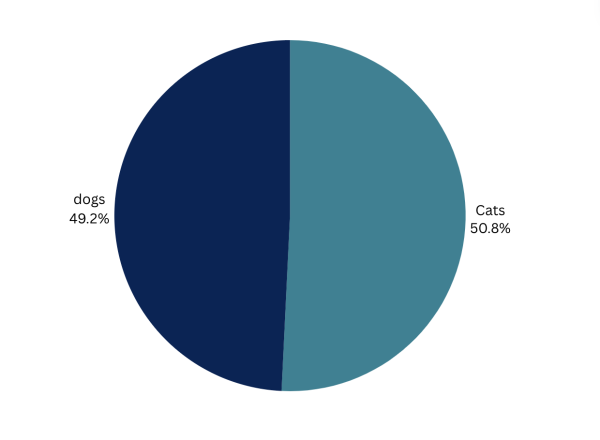Ever since I was a kid I have always had at least five pets in my home. From my loving best friend Boots, who passed away a year ago, to my three cuddly cats. All the pets I have or had came from shelters, and we have never surrendered one.
Euthanasia at the Denver Animal Shelter (DAS) is the highest it’s been in years. The shelter said the trend is happening across the country, as the number of animals arriving at their doors continues to increase. Which means kennels at DAS are getting crowded. They’ve had to double up because there’s no space for the influx of animals coming in, according to Melanie Sobel, director of Denver Animal Protection in her interview with DAS.
Sobel said they saw a 30% increase in intakes of cats and dogs at the shelter from 2019 to 2023. There was also a 92% increase in owner surrenders. Surrenders are also a country-wide trend. During the pandemic, people adopted pets to keep them company throughout the quarantine. Many are saying it’s too expensive in today’s economy, and they don’t have time for pets anymore. Pets are a lifetime commitment.
The Dumb Friends League reports that the 2,000 animals relinquished in 2022 were surrendered because of housing challenges. Denver Animal Shelter saw a 120% increase in owner surrenders between 2022 and 2023. Foothills Animal Shelter reported 33% more owner surrenders.

In 2022, 700 cats and dogs were euthanized. Last year, that number jumped to 1,238. Between 2021 and 2022 the number of stray dogs increased in Colorado by 32%, according to Dumb Friends League.
Lew Young, who used to be a volunteer at DAS, said in an interview with 9News that volunteers also found a different rescue willing to take in a few dogs on the euthanasia list, but the transfers were denied by DAS. She said they also found dog trainers willing to donate their time, but those ideas were also denied.
The number of animals in shelters began to climb in 2021 following the end of the pandemic, and adoptions have not matched the rate – mostly large dogs and older cats. Shelter Animals Count, a national database of shelter statistics, estimates that the U.S. shelter population grew by nearly a quarter-million animals in 2023.
The rise in shelter pets can be attributed to both the rise in the economy and the pandemic puppies trend that happened when many did not wish to be alone during the pandemic.

Pets are a full commitment, and keeping one only for the duration of COVID-19 is unacceptable, they deserve a home for the entirety of their life. Starting to lower the number of animals in shelters can start with adopting, not shopping, and keeping them for their whole lives.









